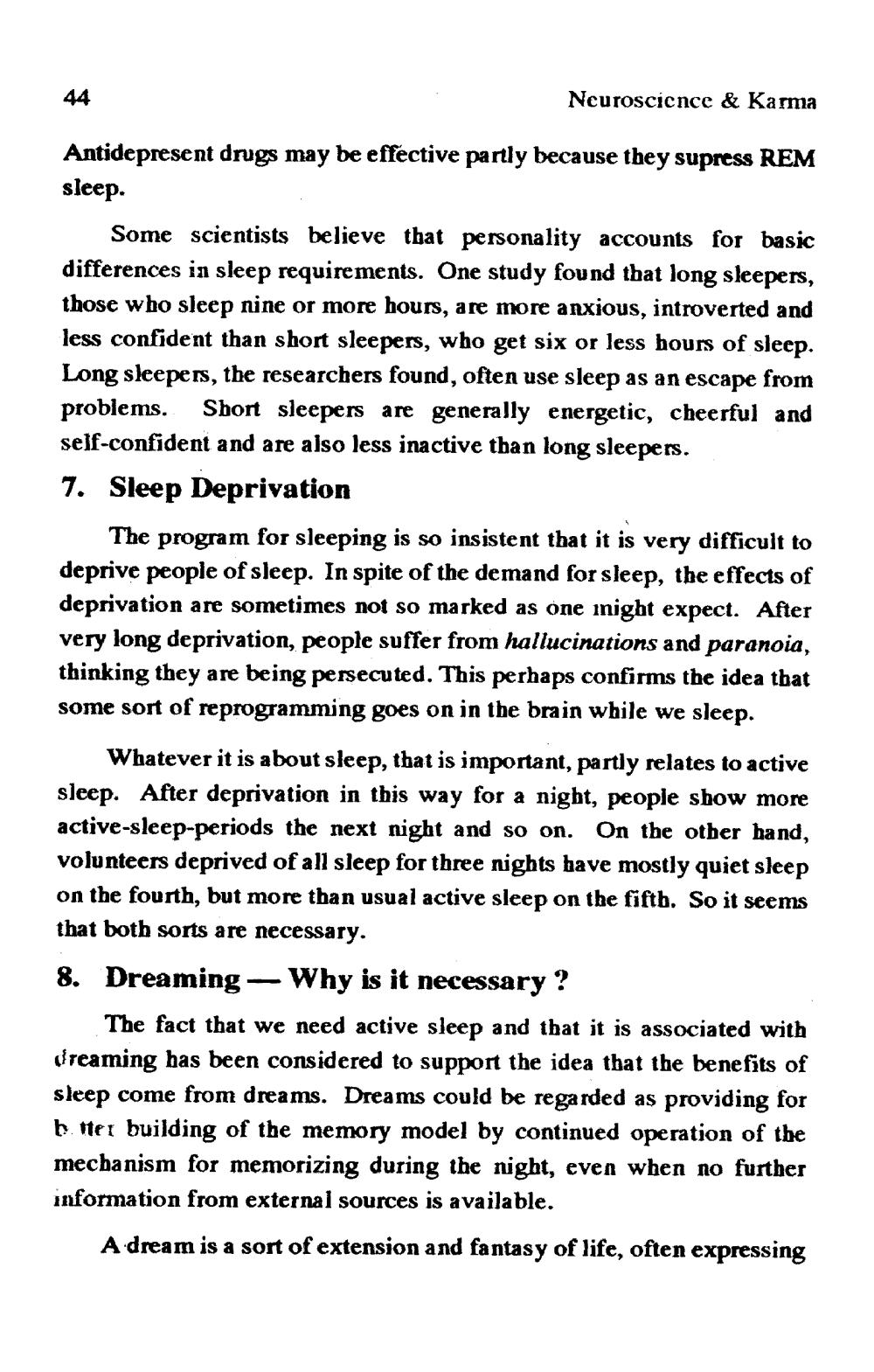________________
44
Neuroscience & Karma
Antidepresent drugs may be effective partly because they supress REM sleep.
Some scientists believe that personality accounts for basic differences in sleep requirements. One study found that long sleepers, those who sleep nine or more hours, are more anxious, introverted and less confident than short sleepers, who get six or less hours of sleep. Long sleepers, the researchers found, often use sleep as an escape from problems. Short sleepers are generally energetic, cheerful and self-confident and are also less inactive than long sleepers.
7. Sleep Deprivation
The program for sleeping is so insistent that it is very difficult to deprive people of sleep. In spite of the demand for sleep, the effects of deprivation are sometimes not so marked as one might expect. After very long deprivation, people suffer from hallucinations and paranoia, thinking they are being persecuted. This perhaps confirms the idea that some sort of reprogramming goes on in the brain while we sleep.
Whatever it is about sleep, that is important, partly relates to active sleep. After deprivation in this way for a night, people show more active-sleep-periods the next night and so on. On the other hand, volunteers deprived of all sleep for three nights have mostly quiet sleep on the fourth, but more than usual active sleep on the fifth. So it seems that both sorts are necessary.
8. Dreaming - Why is it necessary?
The fact that we need active sleep and that it is associated with dreaming has been considered to support the idea that the benefits of sleep come from dreams. Dreams could be regarded as providing for b. tter building of the memory model by continued operation of the mechanism for memorizing during the night, even when no further information from external sources is available.
A dream is a sort of extension and fantasy of life, often expressing




